What is a Pronoun? Understand the Basics
I learned about pronouns in school. They are very important in our language. A pronoun definition is a word that stands in for a noun. It makes talking easier without saying the same thing twice.
Using pronouns right makes our words clearer and smoother. For example, instead of saying “John is going to the store, and John will buy milk,” we say “John is going to the store, and he will buy milk.” This makes our speech better and more fun.
I’m going to talk about different kinds of pronouns and why they matter. Knowing about pronouns helps us talk better. I’m excited to share what I know with you.
Key Takeaways
- Pronouns replace nouns in sentences to improve clarity and flow.
- Effective use of pronouns enhances communication efficiency.
- Understanding pronouns is crucial for clear and engaging language.
- Pronouns have various types and functions in language.
- Mastering pronouns can improve overall communication skills.
What is a Pronoun? Definition and Function
Pronouns are key in making sentences clear and short. They replace nouns, so we don’t have to say the same thing over and over.
The Role of Pronouns in Sentences
Pronouns stand in for nouns, cutting down on repetition. For instance, in “John is going to the store, and he will buy milk,” “he” is a pronoun for “John.” This makes the sentence smoother and simpler.
Why We Need Pronouns in Language
Noam Chomsky said, “Language is a free creation; its rules are set, but how we use them is free and varied.” Pronouns help us be creative and flexible in our speech. Without them, talking would be dull and hard to follow.
“The right word may be effective, but no word was ever as effective as a rightly timed pause.” –
Using pronouns well makes our language clearer and easier to follow. It helps us talk more efficiently.
Types of Pronouns You Should Know
To get better at English, learn about different pronouns. Pronouns are grouped by their use in sentences.
Personal and Possessive Pronouns
Personal pronouns talk about people or things. They are I, you, he, she, it, we, they. Possessive pronouns show who owns something, like mine, yours, his, hers, its, ours, theirs. For example, “The book is mine” shows it’s mine.
Demonstrative and Interrogative Pronouns
Demonstrative pronouns point out things, like this, that, these, those. For example, “This is my favorite book.” Interrogative pronouns ask questions, like who, whom, whose, which, what. For example, “Who is going to the party?”
Relative and Indefinite Pronouns
Relative pronouns link parts of sentences, like who, whom, whose, which, that. For example, “The student who is sitting in the front row is my brother.” Indefinite pronouns talk about any person or thing, like anyone, someone, nobody, everybody. For example, “Everyone is welcome to the event.”
Knowing these types and examples will help you understand English better. It will also make you a better communicator.
How to Use Pronouns Correctly
Learning to use pronouns right is key for clear talk. Pronouns stand in for nouns, making our words less dull. But, they can be tricky to get right.
Pronoun-Antecedent Agreement
It’s important for pronouns to match their antecedents in number and gender. For example, “The student forgot his book” shows a singular match. On the other hand, “The students forgot their books” is plural.
Common Pronoun Mistakes to Avoid
Watch out for two big mistakes: unclear antecedents and wrong case usage.
Unclear Antecedents
Make sure the antecedent is clear. For example, “Sarah told Jane that she was going to the party” is confusing.
Incorrect Case Usage
Choosing the right case is crucial. For example, “The gift is for him” uses the correct objective case.
| Pronoun Type | Correct Usage | Example |
|---|---|---|
| Singular | Agree with singular antecedent | The student did his homework. |
| Plural | Agree with plural antecedent | The students did their homework. |
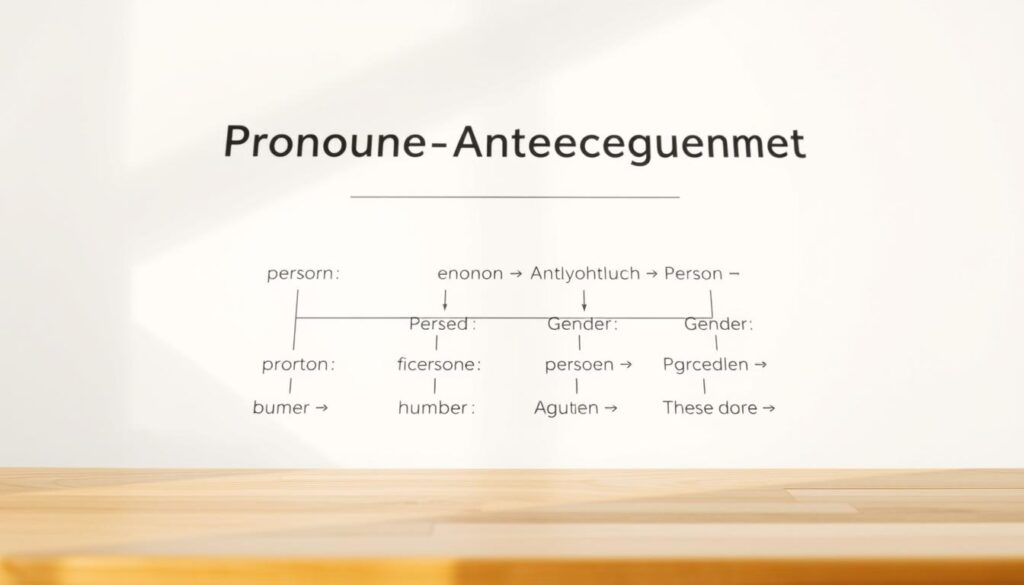
Mastering Pronouns: A Summary
Learning about pronouns is key for good communication. Pronouns take the place of nouns in sentences. This makes our language more fun and easy to follow.
I talked about different kinds of pronouns. These include personal, possessive, demonstrative, interrogative, relative, and indefinite pronouns. Each one has its own job in sentences.
Using pronouns right means knowing when to match them with what they replace. It also means avoiding mistakes. Knowing about pronouns helps you speak and write better. You can share your thoughts more clearly.
Now you know about pronouns. You can make your writing and speaking better. Your language will be more clear and interesting.
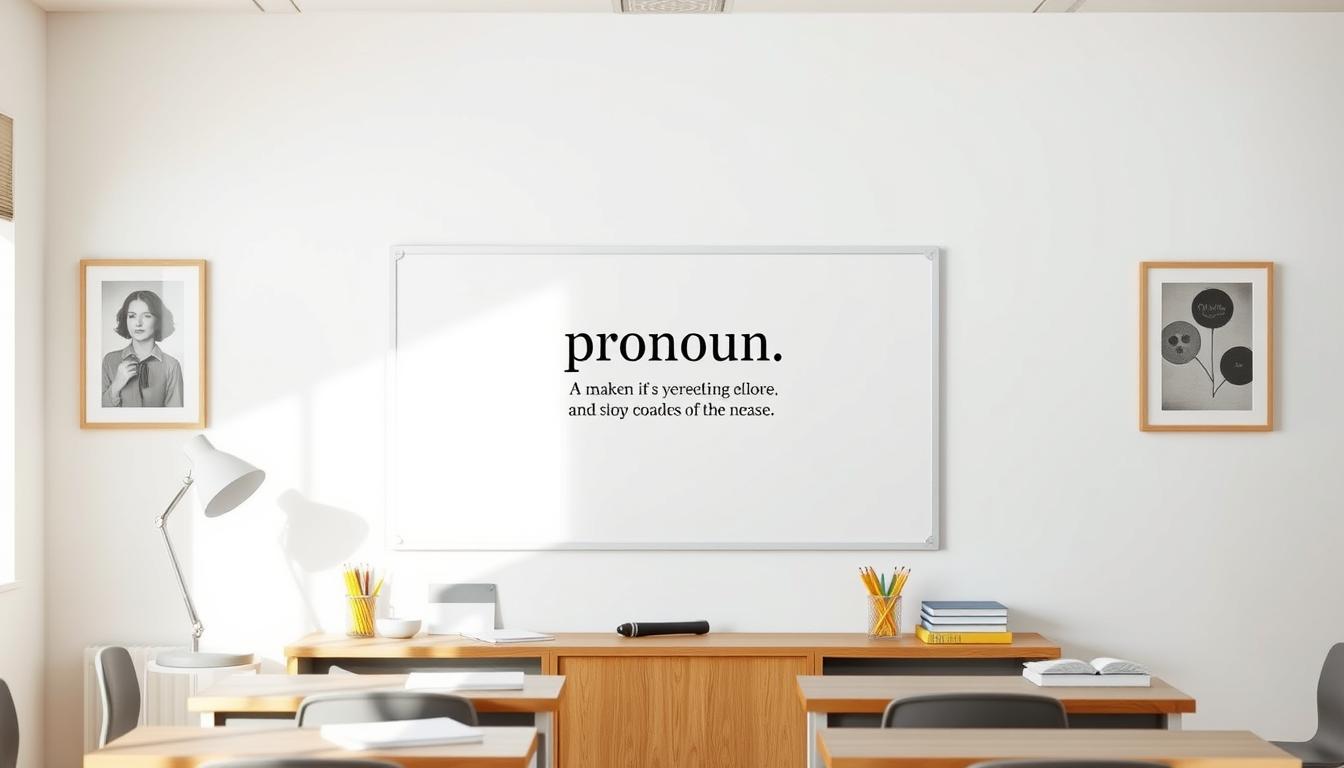



































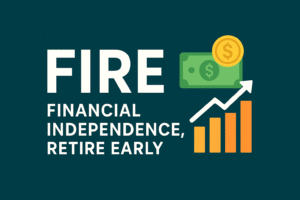






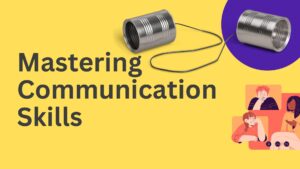








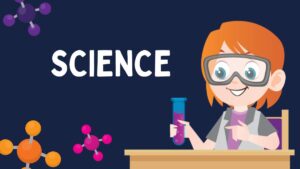












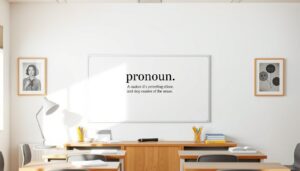
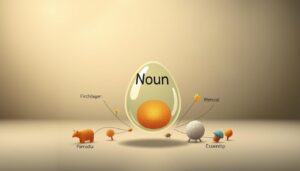
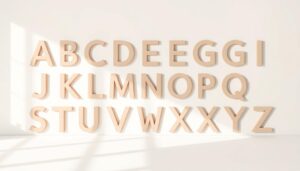



Post Comment